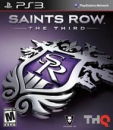Shadow1980 said:
o_O.Q said:
"in the Trump campaign to attack American democracy"
but america is a constitutional republic... what the fuck?
jumping the gun a little early socialists |
*sigh* I know others have already addressed this but...
"Constitutional republic" is for all intents and purposes completely redundant. The vast majority of the world's nations are republics, and they all have constitutions. Having a constitution and being a republic isn't anything special, either individually or combined. It simply means that we A) Have a Constitution, which nearly every nation on Earth has a written, codified one, and B) We have a President rather than a monarch as head of state. Aside from saying that we have a governing document and specifying the nature of our head of state, saying "America is a constitutional republic" has no greater meaning. It tells us nothing about the overall structure of our government, or how or government officials are selected, or if the nation's people enjoy a broad degree of political and civil rights.
But we are a representative democracy. We vote for representatives who make and pass laws on our behalf. We have free and fair elections, therefore we are a democracy.
To summarize this in visual terms:

Also, I long ago came to the conclusion that "socialist" as American conservatives use it is little more than the political equivalent of a schoolyard insult, a word stripped of all of its original meaning in a shallow attempt to invoke the specter of the Red Scare. Bloviating blowhards like Limbaugh and the crew at Fox Noise have made it completely empty. The only people who seriously believe that there are armies of literal Marxists trying to destroy Real America™ are the small portion of the population who are diehard dittoheads who need to have their feelings and beliefs validated by some talking head on the radio or TV. But last I checked, liberals weren't demanding that the means of production should be owned and controlled by the state, or the workers directly. You can go through the streets of the bluest cities in the bluest states and see private, for-profit capitalist entities thriving everywhere. Grocery stores and big-box retailers and shopping malls and drug stores and gas stations and auto repair shops and car dealerships and movie theaters and so on and so on. Nobody's trying to turn America into a "worker's paradise" or a "dictatorship of the proletariat." Democrats have their election campaigns funded by capitalist industries as well. Liberals are fine with the market economy and private ownership of the means of production. Just because they have different opinions on matters of taxation and regulation doesn't make them the political equivalents of Eugene Debs, much less Lenin or Stalin.
Or to paraphrase Inigo Montoya:

o_O.Q said:
can you show me where "democracy" is mentioned in the constitution?
do you know how the people who formed america initially felt about democracy?
|
Regarding the first question, here's the parts of the Constitution establishing at minimum an implicit, and usually an explicit, right to vote in federal elections (relevant parts bolded & italicized for emphasis):
"The House of Representatives shall be composed of Members chosen every second Year by the People of the several States" — Article I, Section I
"Representatives shall be apportioned among the several States according to their respective numbers, counting the whole number of persons in each State, excluding Indians not taxed. But when the right to vote at any election for the choice of electors for President and Vice-President of the United States, Representatives in Congress, the Executive and Judicial officers of a State, or the members of the Legislature thereof, is denied to any of the male inhabitants of such State, being twenty-one years of age, and citizens of the United States, or in any way abridged, except for participation in rebellion, or other crime, the basis of representation therein shall be reduced in the proportion which the number of such male citizens shall bear to the whole number of male citizens twenty-one years of age in such State." — Fourteenth Amendment, Section 2
"The right of citizens of the United States to vote shall not be denied or abridged by the United States or by any State on account of race, color, or previous condition of servitude" — Fifteenth Amendment
"The Senate of the United States shall be composed of two Senators from each State, elected by the people thereof, for six years; and each Senator shall have one vote. The electors in each State shall have the qualifications requisite for electors of the most numerous branch of the State legislatures." — Sixteenth Amendment, first clause
"The right of citizens of the United States to vote shall not be denied or abridged by the United States or by any State on account of sex." — Nineteenth Amendment
"The right of citizens of the United States to vote in any primary or other election for President or Vice President, for electors for President or Vice President, or for Senator or Representative in Congress, shall not be denied or abridged by the United States or any State by reason of failure to pay any poll tax or other tax." — Twenty-fourth Amendment
"The right of citizens of the United States, who are eighteen years of age or older, to vote shall not be denied or abridged by the United States or by any State on account of age." — Twenty-sixth Amendment
Regarding the second question, well, most of the Founders, and other American political leaders of their era, didn't believe that the franchise should be extended to many. Mainly property-owning white males, and even then only for House members. But we are not obligated to honor and respect their beliefs on who the right to vote should be limited to. Through the amendment process, as society has evolved and progressed we have expanded the right to vote to all citizens, not just a handful of privileged white men.
|















































